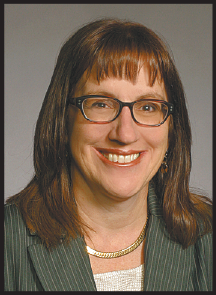July 6, 2015
Why are Support Groups Important?
Your Advocacy Connection
Offering Comprehensive Long Term Care Solutions and Patient Advocacy
 By Nancy Phelps
By Nancy Phelps
GolderCare Solutions
Twenty years ago I attended a brain injury support group. Everyone went around the room and said their name and how long ago their loved one was injured. When I introduced myself, I said, “My name is Nancy, and my husband was brain injured 10 days ago.”
They all gasped! I said, “What’s wrong? Am I not supposed to be here?”
The leader’s response was, “It’s great that you are here, but no one comes this soon. The average time between injury and attendance at a support group is at least 4 YEARS.”
I said, “That’s crazy! Why?”
She agreed and went on to explain that most people try to deal with the emergency situation and then work to make life “normal.” After years (appx. 4), they wind up exhausted, with physical issues that have emerged, and in many cases probably mental health issues, such as anxiety and depression.
I must admit that I didn’t continue attending that particular brain injury support meeting, but I have attended others AND all these life experiences led me to get my Master’s degree in Social Work. Now I can lead the support groups! And now I lead a caregiver support group!
So….why do I think support groups are important? Support groups are one of the few places where you can meet people who can “actually” say, “I know how you feel” or “I know what you are going through,” and they really do because they are experiencing it right here, right now, just like you might be. People only need to have one thing in common to make a connection, and that can be a disease, a cause, an injury, a loved one in a similar situation, a friend, a family member, etc… That one common connection can make you and that person a support system of each other.
Now I’m going to speak specifically to caregiver support groups. What can you get from a support group? Many think it is just a bunch of people who sit and complain about their problems. They think, “what can anyone do to help me out?” There are no “outs,” just the day to day struggle of life caregiving for a loved one. Many think that this is just what life has thrown their way and they need to just “deal with it.” I agree that care givers need to “deal with it,” but they can do this BETTER by having the support of others with who they feel open to speak freely.
I can remember having lots of questions that were very, well…, personal and intimate. Who do you ask? The doctor? Nurses? Will they think I’m selfish? Will they think I am crazy and these are absurd things to be thinking about? What about if my loved one forgets who I am or that we are married? Will I ever be hugged/held again by my loved one? Who will hold me when I am scared?
Caregiver support groups should help attendees to talk openly to ask these questions AND for other attendees to answer and give advice. The group is not about the facilitator and her/his agenda. It is about the people attending and looking for support. In my groups, I look for the nuances that may trigger me to identify that someone needs more help beyond the support group. They many need additional resources for a specific issue that has come up or may come up in the future. I also assess if people need someone to talk to, such as a therapist, outside the group. People who attend caregiver support groups should ALWAYS leave the group meetings feeling good about themselves. Are we a cheering section? You betcha! We are part of your support team and we are on your side!
Nancy Phelps, LISW, LCSW, is a Care Advocate at GolderCare Solutions. She is a licensed independent social worker in Iowa & Illinois with 14 years’ experience in the mental health field. Working at GolderCare allows her to use her years of attaining resources to help others in crisis/need find the resources and help they can use. You can reach Nancy at GolderCare Solutions Unlimited, LLC 309-764-2273.
Filed Under: Health & Wellness
Trackback URL: https://www.50pluslife.com/2015/07/06/why-are-support-groups-important/trackback/


